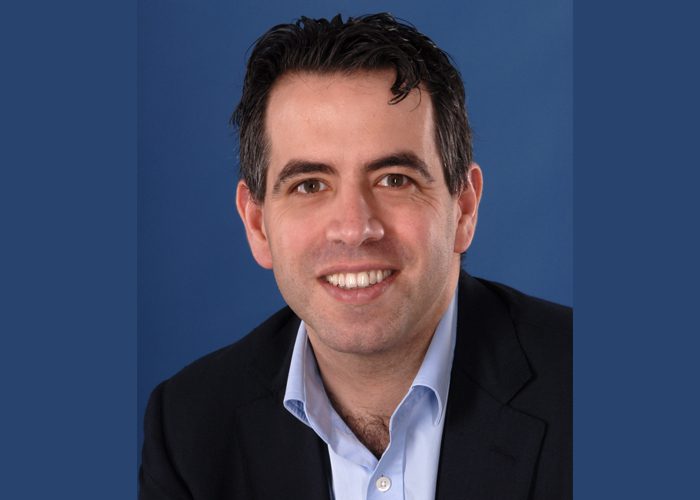EDINBURGH charity Make 2nds Count is co-funding a new study focusing on the spread of secondary breast cancer to the brain.
The funding collaboration, in partnership with Breast Cancer Ireland will bring the study to patients with secondary breast cancer across the UK and Ireland.
The £219,560 grant will enable researchers to investigate screening asymptomatic patients for brain metastases in the hope that early detection will improve survival rates.
Patients with HER2-positive secondary breast cancer are at much higher risk of the disease spreading to the brain but there is currently no regular screening regime to identify any metastases before symptoms show.
The HER2-CNS SURVEILLANCE study aims to investigate the feasibility of recruiting HER2-positive secondary breast cancer patients with no signs of brain metastases, conducting an initial MRI brain scan for brain metastases detection and then randomising patients into two groups: one to receive six-monthly MRI brain scans for a year and another who will not receive the additional scans – the current standard.
Initially, the aim is to recruit 69 patients from six cancer centres across the UK – Liverpool, Birmingham, London, Manchester, Edinburgh and Cardiff – plus one in Dublin in the Republic of Ireland. The study is expected to last for up to three years and the Co-Chief Investigators are Professor Carlo Palmieri, Professor of Translational Oncology at The University of Liverpool and a Consultant in Medical Oncology at The Clatterbridge Cancer Centre NHS Foundation Trust in Liverpool, and Dr Sara Meade, a Consultant Oncologist at University Hospitals Birmingham NHS Foundation Trust.
Some preliminary data on the frequency of brain metastases detection in patients having a brain scan with no symptoms will be collected. Qualitative themes will also be embedded into the research which will discuss attitudes towards the study with eligible participants, barriers to recruitment and whether randomisation is a barrier or facilitator to enrolment. The Sussex Health Outcomes, Research & Education in Cancer (SHORE-C) Group at the Brighton and Sussex Medical School will be responsible for these qualitative research themes.
Secondary breast cancer claims 1,000 lives each month in the UK – an average of 31 deaths every day. Make 2nds Count is dedicated to raising awareness of this little-known form of the disease, also known as metastatic, advanced or stage IV breast cancer, which has spread beyond the breast to other parts of the body. It is incurable, although it can be treated, and currently affects around 61,000 people in the UK.
Professor David Cameron, Chair of the Make 2nds Count Board of Trustees, said: “Overall, this research will subsequently enable a larger study that will explore the benefits of regular brain scanning for detecting brain metastases early in HER2-positive metastatic breast cancer patients when no symptoms are present.
“A key driver of Make 2nds Count is the ability to bring fresh hope to secondary breast cancer patients and their families. So we’re thrilled to be able to fund this initial research which we believe could lead to more positive outcomes for greater numbers of patients.”
Professor Carlo Palmieri, Professor of Translational Oncology at The University of Liverpool, Consultant in Medical Oncology at The Clatterbridge Cancer Centre and Co-Chief Investigator of the study, commented: “I am really pleased that we will be able to launch this important research into metastatic breast cancer. It will set out to discover if regular brain scanning of those with secondary breast cancer is a viable and useful option when monitoring this cohort of patients. We are very grateful to Make 2nds Count for recognising how useful this research will be.”
Dr Sara Meade, a Consultant Oncologist at University Hospitals Birmingham NHS Foundation Trust and Co-Chief Investigator of the study, said: “This project is vital to the fight against HER2-positive metastatic breast cancer. Early detection of disease in the brain will help to prevent neurological decline and facilitate earlier treatment for our patients. We are incredibly grateful to Make 2nds Count for their support.”
Aisling Hurley, CEO of Breast Cancer Ireland commented: “As Ireland’s leading breast cancer charity, Breast Cancer Ireland is delighted to partner with Make2ndsCount to co-fund this incredible body of research into brain metastases through the Beaumont RCSI Cancer Centre’s collaboration with the charity and the University of Liverpool.
“We have always been acutely aware of the benefits of international collaboration in this field, and are proud to have recently launched #MetastaticMatters, an education and awareness campaign specifically focussing on those living with metastatic breast cancer, typically the most challenging area from a scientific research perspective. We’re excited to see the impact of this collaboration between some of the finest research experts in the world, and firmly believe that research and information sharing such as this are the best opportunity for scientific breakthroughs in relation to this ever-challenging disease.”
